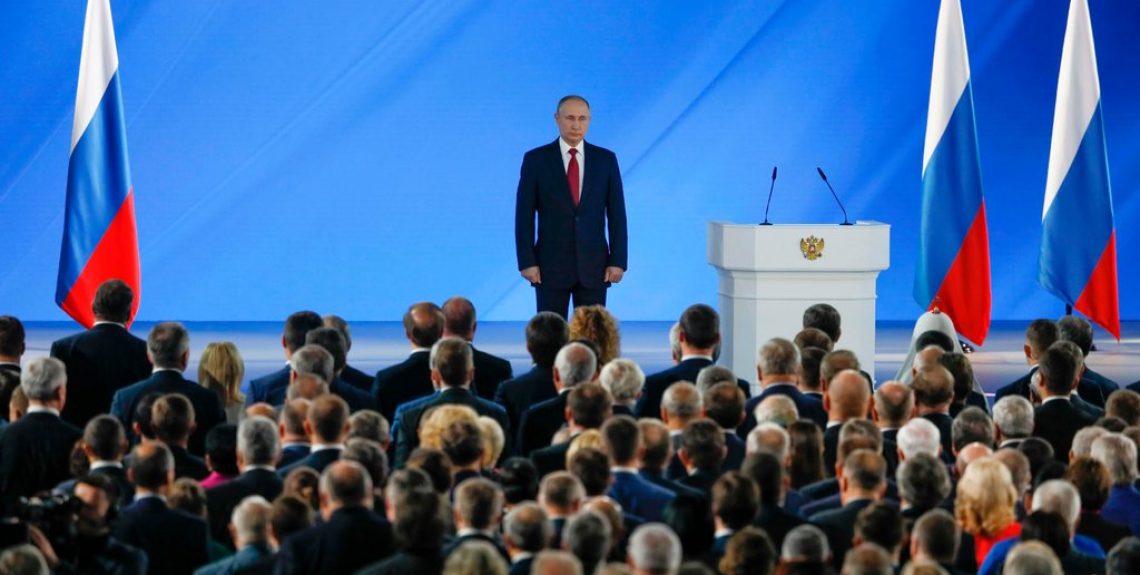In a week of January 2020, President Putin reorganized all the powers of the State. He modified: the Executive, resulting in the resignation of the Prime Minister and the entire government; the Judiciary, replacing the Attorney General; the Legislative engaging him in a rush time constitutional reform that without surprise will be approved in all its parts.
The element of surprise is the one that generated the most comments. For reasons that are intrinsic to the political debate and the Western “narrative”, the fact that everything happened without anyone knowing anything about it, apart from the specialists, who apparently have done a great job so far, is a reason for inadequacy.
As we know in the West, it is common practice to discuss for a long time in any political and social sphere any changes before they occur. The press, the public opinion and the political system deals with it in endless discussions, often followed by a quagmire blocking change. Apparently, this is touted as the essence of democracy, but it is not so and it was not so when democracies were functional.
In Russia all this is not necessary and simply does not happen. Decides, recommended by many, one person, the others execute. And the only relevant question is: what did President Vladimir Putin think for himself after the end of his mandate in 2024?
In Russia reigns a presidential regime. The President is elected for a maximum of two 6-year terms. In the last elections of 2018, out of about 110 million voters, 73,5 million (67,5%) voted. Outgoing President Vladimir Putin took 56,4 million votes (76,6%), the so-called systemic opposition (Communists and Liberal Democrats) 12,8 million votes (17,4%) and other opposition parties about 3 million of votes (6%).
The President is head of the Executive and appoints the Prime Minister subject to the approval of the Duma. He is head of the Judiciary and indicates the Attorney General who is appointed by the Senate. He is the Head of the Armed Forces, as well as the President of the National Security Council (a body that brings together the Government, Prosecutor General, Representatives of the President in the federal districts and the Mayors of Moscow and St. Petersburg). He is also the President of the State Council (an organ that brings together the President of the Chamber of Deputies (Duma), President of the Senate (Federal Council), Governors and heads of federal subjects (85 regions and autonomous republics), the heads of parliamentary groups and representatives of the President (8) in federal districts.
Although Vladimir Putin has presented himself as an independent in the last elections, the Party that supports him, United Russia, is the party of parliamentary majority. its leader is Dmitry Medvedev, former Prime Minister (2012-2020) and former President of the Russian Federation (2008-2012).
In the last elections of 2016, United Russia largely won, obtaining a qualified majority of over 2/3 of the seats (343 out of 450) which allows changes to the Constitution. As a consequence, being the Parliament controlled by United Russia, the President also controls the Legislative and in this scenario of full powers he has advanced a series of constitutional reforms.
From a general point of view, these affect precisely the division of powers, reducing slightly those of the President, increasing those of the Prime Minister and of the Parliament and introducing constitutional powers to a now consultative body such as the State Council.
Western observers have concluded that Putin will therefore want to be either the Prime Minister as in 2008-2012 but with greater powers, or to remain as he is now President of the State Council with all new powers given him by the Constitution.
The Constitutional reform project envisages a series of other interventions aimed at strengthening control (appointments and removals) in the judiciary: Constitutional Court, Supreme Court, Prosecutor General and regional Prosecutors by the Senate.
In addition to all the parliamentary passages, the changes will be the subject of a similar popular referendum of approval, the question of which will be in bulk in a single question: “Do you agree with the constitutional reforms?”. Putin wants a tight ship and a sure hand at the helm: his own,.
Roberto D'Agostino
Executive and Italian Honorary Diplomat based in Russia, an expert in Government Relations and Russia’s domestic and international affairs. Graduated in Oriental Studies in Italy, he specialised in Middle East and Soviet Studies in Cairo, Moscow and New York.






















